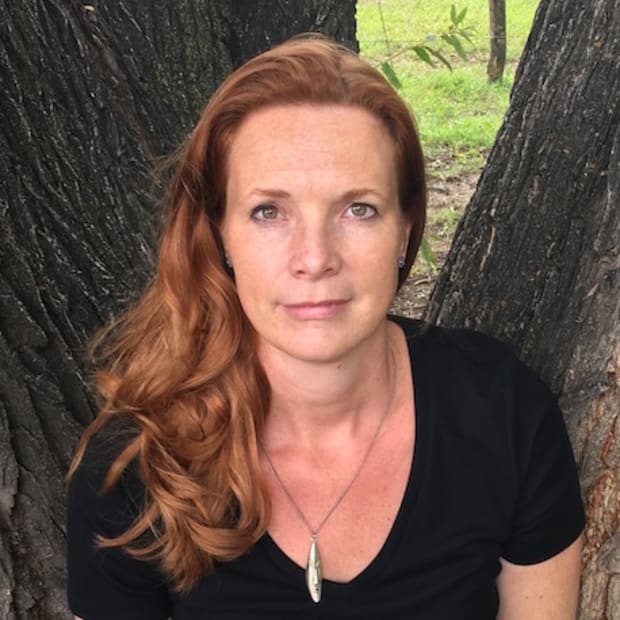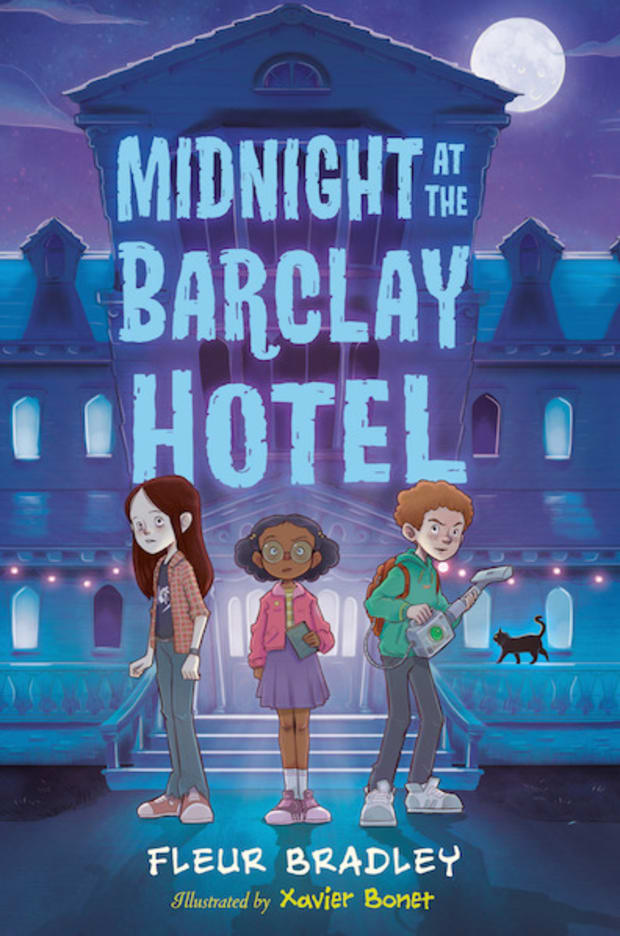Night had fallen by the time the teacher made up his mind to go out in search of news. The lights of the nearby farm were half blotted out by the fog, and beneath his anxiety the teacher was happy to think he’d be leaving the next day, because once August was over life here was clearly lived amid unending rain and mist, as he hadn’t known before, as this afternoon had abruptly taught him. ‘Just imagine living here year-round! Not for me, no thank you!’ he muttered in disgust as he started down the path to the farm, testing the terrain ahead with the tip of his shoe before every step, so dim was the light of the moon.
The cold seemed to have come on all at once, just after lunch, as the teacher and his wife were tranquilly talking over their plans to return to the capital the next day, the second of September, a little later than usual. Suddenly a shiver ran through them both, and the teacher offered a few wise thoughts on the changing seasons. Had they perhaps delighted a little too smugly in their approaching departure, their only regret being that the fair weather hadn’t stayed with them for just one day more? It was certainly true that they’d never given a moment’s thought to the climate or anything else of this place, once the thirty-first of August came and they headed homeward; their long, invariably happy, sunlit vacation at an end.
And now a misty rain was falling, and the teacher had no coat to put on.
Feeling the cold, he walked through the farmyard to the house, knocked on the door. No answer came, and he guessed someone was looking out a second-floor window to see who was there, perhaps having difficulty making out his face, possibly waiting to be sure they recognized him before coming down. Self-conscious, he took a step back, looked up. His forehead stung from the cold. ‘Just yesterday it was’ so nice,’ he blankly said to himself over and over, dismayed, suddenly despondent.
Finally the farmwoman opened the door a crack. ‘I’m Herman,’ he called out, ‘the teacher, your neighbor.’
‘Oh yes, yes.’
She opened the door wide, cordial and smiling but evidently not about to ask him in. She was a sturdy young woman with very red cheeks.
‘Have you seen my wife and our son?’ he asked.
He explained that Rose and the child had headed for the farm three hours before to buy eggs, so he was thinking they hadn’t come back because Rose had lingered to chat, or maybe the child had insisted on saying goodbye to the animals. But now it was time they were home, and he himself, Herman, the teacher, had been worrying all this time, concurrently a little indignant, that Rose hadn’t bothered to set his mind to rest with a phone call. His exasperation grew as he spoke.
‘I’d like you to tell them I’m here,’ he said sharply.
He took a step forward, inserting his shoe between the woman’s firmly planted feet, trying to protect at least his head from the spitting rain, but he immediately pulled it back, and even, blushing, began to retreat, because far from grasping that he wanted to come in and politely standing aside to make way, she stood rooted to the spot, still as affable as ever with her face slightly tilted toward him, the better to hear. A blouse printed with apple blossoms – worn by all married women in this region, he happened to know – encased her breasts, slightly compressing them, tied on one side by two laces of contrasting colors, which, if you were up on the local customs, told you what year she’d taken a husband. The scarlet of her cheeks was perfectly mirrored in the heart of each flower.
‘Can’t she see I’m soaking wet?’ Herman asked himself, both shocked and submerged in a sort of numbness that erased all trace of anger.
Seeing her offer no answer, make no move, even as she went on staring at him with a strangely obliging gaze, he asked her again to bring him Rose and the boy, carefully enunciating each word. Longing for the next day, the day that would see all three of them back in the capital, he wearily told himself: ‘Oh, I’ll never understand these people!’
She looked at him in surprise, and a little sound escaped her throat. She vaguely raised her arms in a sign of impotence – very pink, plump arms, bulging above the elbows where they emerged from the grip of the blouse’s short sleeves.
‘No one ever came here,’ she finally said. ‘We’ve seen no one today but the rural patrol.’
‘That’s impossible!’ cried Herman.
His exasperation came flooding back, spurred on by a terror he’d never felt before. He shook his index finger under the farmwoman’s nose.
‘First you claim no one came here today, and then suddenly you tell me the patrolman stopped by: it doesn’t add up! In that case, why shouldn’t you have seen my wife and son too, since they told me they were coming here to buy eggs?’
She was still smiling, surprised, silent. The teacher sensed she’d stopped listening but was determined to go on displaying unshakable goodwill, perhaps out of respect for the time-honored duty to treat visitors courteously, overlook any offense, an obligation people around here traditionally honored, despite what they might be feeling inside. His worry was getting the better of him, he wasn’t thinking straight. Rather than rushing right off to try to find where Rose and the boy might have gone, Herman was fixated on getting inside, shoving the woman out of the way if need be, then sitting down for a few moments, he thought, in the kitchen by the stove, where he could dry his clothes and try to calmly question this woman, who would have no choice but to concede that it was impossible she hadn’t seen Rose and the child that afternoon if Herman could only show her, point by point, as he did with thick-headed students, that her first assertion didn’t stand up to scrutiny.
‘Let me explain,’ he insisted, with an edge in his voice. ‘I assure you, Rose came here. Where else would she have gone in this weather?’
‘Not a warm day,’ the woman agreed.
And she went right on smiling. Whenever he spoke she delicately tilted her forehead his way, with an exquisite courtliness that rattled the teacher. Try as he might to maintain his poise, wasn’t he showing a deeply deplorable disrespect, and wouldn’t the villagers construct their sense of him based on what this woman would surely soon tell them of this encounter? For ten years he and Rose had been spending their summer vacations in this remote area, and he’d made it a point of pride to behave with the slightly superior civility he thought the only suitable stance for citizens of the capital, always intent on revealing their sophistication but too fine to make a show of it. And now, despite his best intentions, drunk with worry, he must seem like a boor in the eyes of this woman and everyone else around here, all these people with their oddly refined manners.
‘Forgive me,’ he said, ‘it’s just that, you understand, I can’t think where my wife . . .’
‘Yes of course, the weather changes so fast around here, you have to know it’s coming.’
Understanding that he was about to say goodbye, she widened her smile, gave him a bow, even stepped far enough outside to be dampened herself, elegantly pointing the way to the front gate – though there was no need, since Herman had come through it on his way into the courtyard – but with that gesture pushing helpful neighborliness to its furthest extreme. He returned her bow, feeling his awkwardness, and the rain fell on the back of his neck, slid down his spine. Shivering, he turned on his heels and slogged back toward the gate. The woman closed the door behind him, and immediately the house’s ground floor was dark, which he couldn’t help thinking slightly rude. He must have offended her enough that she believed she could justifiably limit the geniality of her face and gestures to when he was looking at her; for that matter, maybe the code governing behavior with outsiders, however rigorously welcoming it obliged one to be in their presence, did not stipulate that one had to go on helping once their backs were turned.
Herman set off running down the road. His panic returning, he saw from afar that no light was shining in his house, which meant Rose hadn’t come home, so he immediately turned toward the village, still running, breathing heavily, throwing out little cries and involuntary interjections.
‘Really, in weather like this,’ he hiccupped, frantic, ‘isn’t it strange . . . it’s scary . . . And the boy, out in the cold . . .’
And that abrupt drop in temperature put the finishing touch on his terror, convincing him that by waiting one day too long to go home and thus breaking with a ten-year habit, by letting September come to them here when September was a month they knew only in Paris, he and Rose had laid themselves open to unknown tribulations they might not be strong enough to withstand. Because what did they know of the fall around here, what did they know of these people’s ways once all the outsiders were supposed to have left? The fact was that outside of summertime they knew nothing about the place at all.
‘We have no idea what dangers we might face around here,’ Herman told himself, panting, ‘the rain, the wind on the back roads, these simple people who might not take kindly to strangers on their turf once the thirty-first of August has passed . . . How stupid, how blind . . .’
He didn’t think for a moment that Rose might be in one of the many village shops: it would be unlike his wife to spend hours poring over merchandise. Nor did Rose and Herman or even the little boy have any friends they might be visiting in the village, they knew no one Herman could call on and ask if they might have seen Rose come by, although every day in the summertime they came down together to do their shopping, and everyone knew them by sight. But Herman strongly sensed that he mustn’t let himself go running to anyone desperately asking after Rose. That would be a sort of indecently misplaced thing to do, even a grave transgression of the rules of deportment, whose specifics he nonetheless knew nothing about, even if he was beginning to grasp their spirit.
He slowed to a walk a little before the village’s first houses, trying to force a casual gait in spite of his trembling legs, his dripping face.
‘They’re going to wonder why I don’t have an umbrella,’ he told himself uneasily.
He walked three times around the deserted village square, hands in his pockets, and his shoulders were suddenly racked by outright convulsions. He hurried down the main street, heading for the gendarmerie.
However certain he was that he wouldn’t see Rose inside, he couldn’t help glancing into every shop he passed by, and he sensed that the owners, idle at this late hour, were also watching him as he passed, their expressions inexplicably disapproving. Was it, Herman wondered, because they were surprised to see him still here on the first of September, in the rain, in soaked shirt sleeves, finding that suspicious in itself? Maybe the people around here didn’t like outsiders experiencing autumn, which was in a sense none of those outsiders’ business, maybe they thought the intrusion into their mysterious post-summer life indiscreet? For a moment Herman was excited – his worry forgotten – to find himself here in the village in this season unknown to his fellow Parisians, who by now were all back in their apartments, vaguely assuming, as Herman once did, that the region they’d just abandoned had gone into hibernation, awaiting their return the next summer, perhaps preserved in a perpetual green mildness.
‘If they only knew,’ thought Herman with a flush of pride, ‘how it rains here all day long from the first of September, not to mention the cold, they’d never dream! I’m going to have a good surprise for them, I’ll tell you that . . .’
For the first time he noticed that the women behind the counters of the bakery, the charcuterie, and the hair salon all wore the same blouse he’d seen on his farmwoman neighbor, with the same scarlet-hearted apple blossom print, and it compressed their breasts in just the same way, and was tied with those same multicolored cords of very specific signification, which, Herman thought, gave them that formal, slightly haughty air and that ramrod posture, only their necks seeming to move fluidly, extending their heads toward their interlocutors as the farmwoman had so graciously done to express her attentiveness. In the hard white light of the shops, the little flowers’ red-glowing hearts strew bloody dots over the women’s immobilized busts as they bent their foreheads nearer the windows to observe Herman with their stern, severe eyes. They smiled when Herman looked back, but only with their lips, an almost urbane smile, excessively revealing their teeth. They dipped their heads in a rudimentary bow, their eyes looked down and then away, the blood-red flecks on their blouses rippling with that discreet movement.
Abashed, Herman stopped looking through the shop windows. He ran until he reached the gendarmerie, at the far end of the main street, among the village’s very last houses, where the rows of streetlights came to an end and the Paris-bound national highway started. The building was dark. He pushed open the door all the same, and light filled the office the moment he entered, blinding him. He squinted, then cried out in relief: ‘Oh, so there’s somebody here!’ And his apprehension found some respite at last.
A gendarme was sitting at the one desk in the room, shifting his pen back and forth from hand to hand. He’d turned on the lamp as soon as the door opened, but Herman saw nothing to suggest he was waking from a nap. His eyes were bright, calm, attentive. Herman immediately headed toward the big gas heater purring in the corner, turned his shivering back to it, and let out an ‘Oh…’ of almost painful contentment. He thought he saw the gendarme’s gaze drift again and again to his shoes, made of fine, orange-tinted leather, unsuitable for walking the back roads.
‘I’ve come about a serious matter,’ he began. ‘Tomorrow. The office is closed.’
The gendarme wasn’t smiling, but his face radiated a deep, gentle courtesy that again left Herman at a loss. He thought he could justifiably assume that expression signified an eagerness to be helpful at any cost; as if, in spite of his words, the gendarme were crying out: ‘I am here to serve!’
Encouraged, Herman pretended he hadn’t heard the gendarme’s answer. He explained in detail that Rose and their eight-year-old son had disappeared, that they were supposed to go home the next day, emphasizing – a little absurdly, even to him – that in previous years they’d never once delayed their return to Paris. He asked the gendarme to take down his description of Rose and the boy. And as he spoke his anxiety began to swell again, until, drained, he felt his voice crack, his stomach tighten.
You must understand,’ he repeated, though he knew he’d said more than enough, ‘I’ve never seen the fall here before, this rain, this biting cold . . . We were always gone by now, and we had no idea what happens here afterward.’
The gendarme listened, sitting still, making no move to take notes, bent slightly toward Herman, every detail of his face marked by tact and distinction. A long silence followed Herman’s speech, and he stood wearily rubbing his hands behind his back near the blazing heater. At last the gendarme gently raised his eyebrows, as if he’d been waiting to make sure his guest was done before answering, so as not to risk breaking the thread of his reasoning. He was a very young man with pale hair, vaguely yellow, incomparable to anything in nature – typical, Herman reminded himself, of the region.
‘No such thing has ever been known to happen here,’ he said in a melodious voice. ‘As far back as I can recall, never once has a villager disappeared.’
‘We’re not from the village,’ Herman murmured. ‘We live in Paris from September to June. And our summer house is outside of town, maybe 800 meters away.’
‘Ah, interesting.’
The young man nodded, and the corners of his mouth mechanically pulled back into a respectful, formal smile. All at once – from that smile and from the gendarme’s nonchalance, his almost flirtatious preciousness – Herman understood that he had no intention, tonight at least, of working on his case, of even just writing down what Herman had told him, and that his light, mannered tone might have no other goal than to tell him so without undue harshness.
Seeing him so disinclined to take an interest, Herman began to doubt that things would be any different the next morning.
‘He doesn’t care if anything happens to Parisians,’ he thought, ‘and if it does, it’s not his problem.’
‘Once summer’s over, once the thirty-first of August has passed, then you want nothing more to do with us, do you? If we insist on staying till fall we do so at our own risk, we’re all on our own, and no authority is going to protect us. As far as you’re concerned we have no legal existence, that’s how it is, isn’t it?’
Offended, the gendarme shook his head. He assured Herman that at any time of year outsiders would find aid and protection from the local constabulary, and no gendarme had the right – not even the mayor had the right, or the town council, or the prefect – to decide otherwise.
‘But do you ever have outsiders here in the fall? Or any season but high summer?’ asked Herman, a little annoyed, less amiable than he would have liked.
‘In truth, never.’
And the young man ingratiatingly added that Herman was the first Parisian he’d ever seen in the autumn rain and the stinging cold that inevitably settled in on the first of September, not to leave again until the middle of June. He didn’t say if he thought it was a good thing that a vacationer had crossed over the border of summer for the first time, if as a villager he found that development auspicious or galling. Herman was desperately curious to know. He folded his arms and put on a casual air.
‘Is it in any way risky for me to stay here? Am I in any danger of arousing the antipathy of the locals?’ ‘No, no, of course not!’
The young man smiled more broadly, made placating gestures with both hands, assured Herman that everyone here would be glad for the opportunity to deploy their hospitality, which for many was nothing short of a mania.
‘And in any case, as soon as you find your family you’ll go home, right?’ he concluded, his tone slightly pleading, as if, thought Herman, the tightly clenched reins of perfect, codified politesse for a moment slipped slightly from his grasp.
‘How will I ever find them without your help? You haven’t even written down their descriptions!’ Herman cried.
‘Come back tomorrow. As I told you, this isn’t the time. My shift officially ended an hour ago. I did turn off the light, and people generally don’t come walking into a dark building.’
Having said that, the gendarme gave a little bow, his eyes fixed on Herman’s shoes. Herman sighed, then turned toward the heater to warm his belly a little. He couldn’t bring himself to walk out into the rain, to go home – more than a kilometer away now – to end up adrift in the silent house, which he didn’t know in such weather, and fret all through the night. But his clothes were now thoroughly dry, and he had no excuse to linger in the gendarmerie. He nodded to the young man and went out.
‘My God, what do I do?’ he moaned when he was outside.
Had he ever known such helplessness? He felt terribly weak, desperately ill-equipped to face a situation of this sort. Not wanting to pass the shops again, he decided to take the lane, a narrow road that bypassed the village and climbed directly to the plateau where his summer house stood, his and many others, all of them now closed up for the year. The rain was still coming down; the cold was sharper now that night had fallen. Herman pushed on as best he could through the dark, whimpering, ‘My God, my God’ over and over in a shivering voice, and for the first time he thought it would have been a fine thing, that evening, to have a house in the village, nestled among all the others, to walk home on a brightly lit street where he might meet some acquaintance he could pour out his troubles to. Very likely under the influence of the gendarme’s words, he found himself thinking that Rose and the child could never have disappeared if they had had such a house, if they’d simply emerged from one of these houses so huddled together that everyone must know everything that goes on in the houses next door, and if, rather than going off for eggs by the desolate country road that led to the farm – a road hemmed in by fields edged with tall mulberry hedges – they’d simply made for the nearby village grocery, which sold eggs from that very farm. No villager had ever disappeared, the gendarme claimed, and Herman wholeheartedly believed it. He was just as convinced that no such misadventure had ever befallen an outsider in the heart of the summer either, and since he and Rose were evidently the first to cross over into fall, they were the first to face the consequences of an untested experience.
‘If there’s going to be trouble, best to face it head on,’ Herman mumbled, trembling and terrified. ‘But will we be able to leave tomorrow? Oh, my God, my God . . . ’
The start of the school year was five days away. He didn’t want to question whether they would be in Paris before then, but already he was fearing the disorder set off in his very tidy mind by this encounter with autumn in the village; in the region which, as he stumbled hunched and cold along the lane, he no longer considered it a privilege to be.
‘Cursed fall,’ he muttered, ‘cursed place! Another two weeks here and I’d be done for. But I won’t have it said that we backed away from trouble, not even the little one.’
He had some difficulty finding the house in the fog, unlit as it was by the garden lamps that shone from dusk to dawn all summer on the adjoining lots. The rooms were freezing cold and the house had no heater. For ten years they’d been coming to this place, and until the thirty-first of August Herman and Rose had known nothing but unending warmth. Only the sight of the pastures, dazzlingly green, almost artificial-looking, made them suspect that it wasn’t the same all year round, but they never thought to ask anyone to confirm that lazy assumption.
Herman lit the stove’s four burners, pulled a mattress into the kitchen. The cold and the primitive conditions made his despair complete. The best thing he could do, he thought, was try to get some sleep so he could get up early in the morning and launch a serious search. Remorsefully he told himself: ‘No one could possibly be more feeble than me. Out there on the lane my teeth were chattering in terror, and it was for myself that I was trembling, not for my loved ones. I’d never find the strength tonight to go scour the road and the hedgerows. No: first thing tomorrow, I’ll get the gendarmes to help me.’

This is an excerpt from That Time of Year by Marie NDiaye, translated from the French by Jordan Stump and published by Two Lines Press.
Photograph © Ars Electronica / Ei Wada
The post That Time of Year appeared first on Granta.






